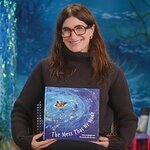By Elizabeth Willoughby on
“Without feedback from precise measurement,” Bill Gates quotes author William Rosen, “invention is ‘doomed to be rare and erratic.’ With it, invention becomes ‘commonplace.’”
In an article he wrote in The Wall Street Journal last month, Gates says measurement is just as important to improving the human condition as it is to promoting invention, yet measurement can be very difficult to gather and is missing surprisingly often.
“Historically, foreign aid has been measured in terms of the total amount of money invested, but not by how well it performed in actually helping people,” says Gates. “Despite innovation in measuring teacher performance world-wide, more than 90 percent of educators in the US still get zero feedback on how to improve. An innovation, whether it’s a new vaccine or an improved seed, can’t have an impact unless it reaches the people who will benefit from it. We need innovations in measurement to find new, effective ways to deliver those tools and services to the clinics, family farms and classrooms that need them.”
The Millennium Development Goals, he says, set 2015 as the deadline for achieving specific minimum levels of improvement in health, education and income, but unlike previous declarations, “Millennium goals were backed by a broad consensus, were clear and concrete, and brought focus to the highest priorities.”
He sites Ethiopia as a good example of success due to measurement. A land where it is customary to wait a month after births before naming babies since so few survived, Ethiopia set itself the Millennium goal of reducing child mortality by two-thirds. Based on a healthcare initiative performed in Kerala, India, Ethiopia created staffed health posts to record immunizations, disease cases and mortality data. Healthcare workers also began making home visits to ensure each household had a malaria bed net, pit toilet and basic health and safety practices, and to provide regular checkups for pregnant women.
Today, says Gates, because of measurements we know that Ethiopia is on track to achieve their child mortality goal by 2015 – and babies are being named at birth.
Copyright © 2013 Look to the Stars





